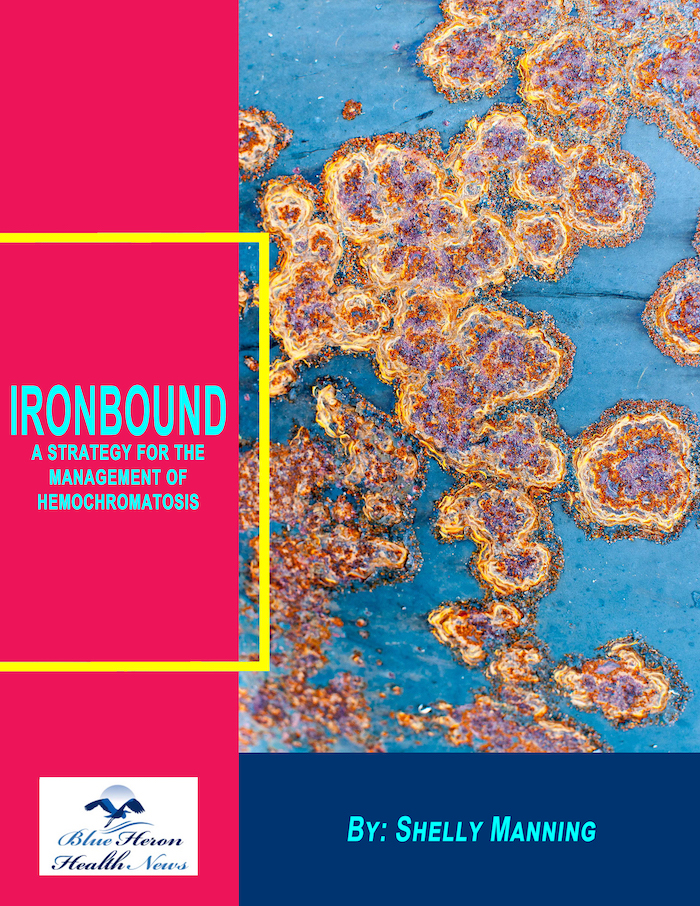Ironbound™ A Strategy For The Management Of Hemochromatosis By Shelly Manning if you are suffering from the problems caused by the health condition of HCT due to excess amount of iron in your body then instead of using harmful chemical-based drugs and medications you are recommended to follow the program offered in Ironbound Shelly Manning, an eBook. In this eBook, she has discussed 5 superfoods and other methods to help you in reducing the level of iron in your body in a natural manner. Many people are benefited from this program after following it consistently.
What is the impact of a high-carb diet on cholesterol oxidation?
A high-carbohydrate (high-carb) diet can significantly impact cholesterol oxidation through multiple pathways, primarily by increasing blood sugar levels, promoting insulin resistance, and triggering oxidative stress. These effects contribute to the oxidation of low-density lipoprotein (LDL) cholesterol, which is a key factor in the development of atherosclerosis and cardiovascular disease.
1. Elevated Blood Sugar and Oxidative Stress
One of the main ways a high-carb diet contributes to cholesterol oxidation is by increasing blood sugar (glucose) levels, especially when it consists of refined carbohydrates and sugars.
- Hyperglycemia and Reactive Oxygen Species (ROS):
High-carb diets can lead to sustained elevations in blood glucose, which generates reactive oxygen species (ROS). These unstable molecules damage LDL cholesterol, converting it into oxidized LDL (oxLDL). - Lipid Peroxidation:
Excess glucose promotes the peroxidation (oxidative degradation) of lipids, increasing the oxidation of cholesterol in the bloodstream. - Impaired Antioxidant Defenses:
A high-carb intake, especially from processed sugars, depletes antioxidants like vitamin C and glutathione, making LDL more susceptible to oxidation.
2. Insulin Resistance and Altered Lipid Metabolism
A diet high in refined carbohydrates can contribute to insulin resistance, a condition where cells become less responsive to insulin, leading to metabolic imbalances.
- Increased Small, Dense LDL Particles:
Insulin resistance promotes the production of small, dense LDL particles, which are more prone to oxidation than larger LDL particles. - Higher Triglyceride Levels:
High-carb intake raises triglyceride levels, which are associated with increased oxidative stress and cholesterol oxidation. - Reduced HDL Cholesterol:
Insulin resistance is linked to lower levels of high-density lipoprotein (HDL), which normally helps clear oxidized LDL from blood vessels.
3. Chronic Inflammation and Cholesterol Oxidation
A high-carb diet, particularly one high in refined sugars and processed foods, promotes chronic inflammation, which plays a key role in cholesterol oxidation.
- Increased Inflammatory Cytokines:
High-carb diets elevate inflammatory molecules like tumor necrosis factor-alpha (TNF-α) and interleukin-6 (IL-6), which stimulate oxidative stress and LDL oxidation. - Macrophage Activation and Foam Cell Formation:
OxLDL is readily taken up by immune cells (macrophages), forming foam cells that contribute to plaque buildup in arteries. - Endothelial Dysfunction:
Chronic inflammation weakens the endothelial cells lining blood vessels, making it easier for oxLDL to accumulate in artery walls.
4. Advanced Glycation End Products (AGEs) and LDL Oxidation
Excess carbohydrates, particularly from high-glycemic foods, contribute to the formation of advanced glycation end products (AGEs)—harmful compounds that result from sugar binding to proteins and lipids.
- AGEs Promote LDL Oxidation:
Glycated LDL is more susceptible to oxidation, leading to an increase in oxLDL levels. - AGEs Increase Oxidative Stress:
These compounds stimulate oxidative stress pathways, further exacerbating cholesterol oxidation. - Vascular Damage and Atherosclerosis:
AGEs contribute to stiffening of blood vessels and promote the development of arterial plaques.
5. The Role of Fructose and Processed Carbohydrates
Not all carbohydrates have the same effect on cholesterol oxidation. Highly processed carbs and fructose-containing sugars (e.g., high-fructose corn syrup) are particularly problematic.
- Fructose and Liver Fat Accumulation:
Fructose is processed primarily in the liver, where excess amounts contribute to fatty liver disease, insulin resistance, and increased oxLDL. - Increased Uric Acid and Oxidative Stress:
Fructose metabolism generates uric acid, which promotes oxidative stress and LDL oxidation.
Conclusion
A high-carb diet, particularly one rich in refined carbohydrates and sugars, increases cholesterol oxidation through hyperglycemia, insulin resistance, oxidative stress, inflammation, and the formation of AGEs. These processes elevate oxidized LDL levels, increasing the risk of atherosclerosis and cardiovascular disease.
Strategies to Reduce Cholesterol Oxidation
- Choose Complex Carbohydrates:
Whole grains, fiber-rich vegetables, and legumes help regulate blood sugar and reduce oxidative stress. - Limit Processed Sugars and Refined Carbs:
Reducing white bread, pastries, sugary drinks, and processed foods lowers inflammation and oxidative damage. - Increase Antioxidant Intake:
Consuming foods rich in antioxidants (e.g., berries, nuts, leafy greens) can help combat LDL oxidation. - Balance Macronutrients:
A diet that includes healthy fats (e.g., omega-3s from fish and nuts) and lean proteins can reduce the negative impact of high-carb intake.
By managing carbohydrate intake and prioritizing whole, nutrient-dense foods, it is possible to minimize cholesterol oxidation and reduce the risk of heart disease.

Ironbound™ A Strategy For The Management Of Hemochromatosis By Shelly Manning if you are suffering from the problems caused by the health condition of HCT due to excess amount of iron in your body then instead of using harmful chemical-based drugs and medications you are recommended to follow the program offered in Ironbound Shelly Manning, an eBook. In this eBook, she has discussed 5 superfoods and other methods to help you in reducing the level of iron in your body in a natural manner. Many people are benefited from this program after following it consistently.